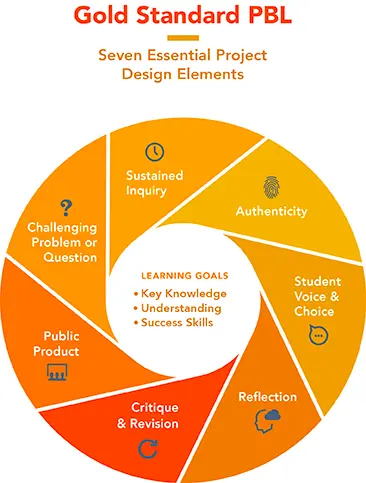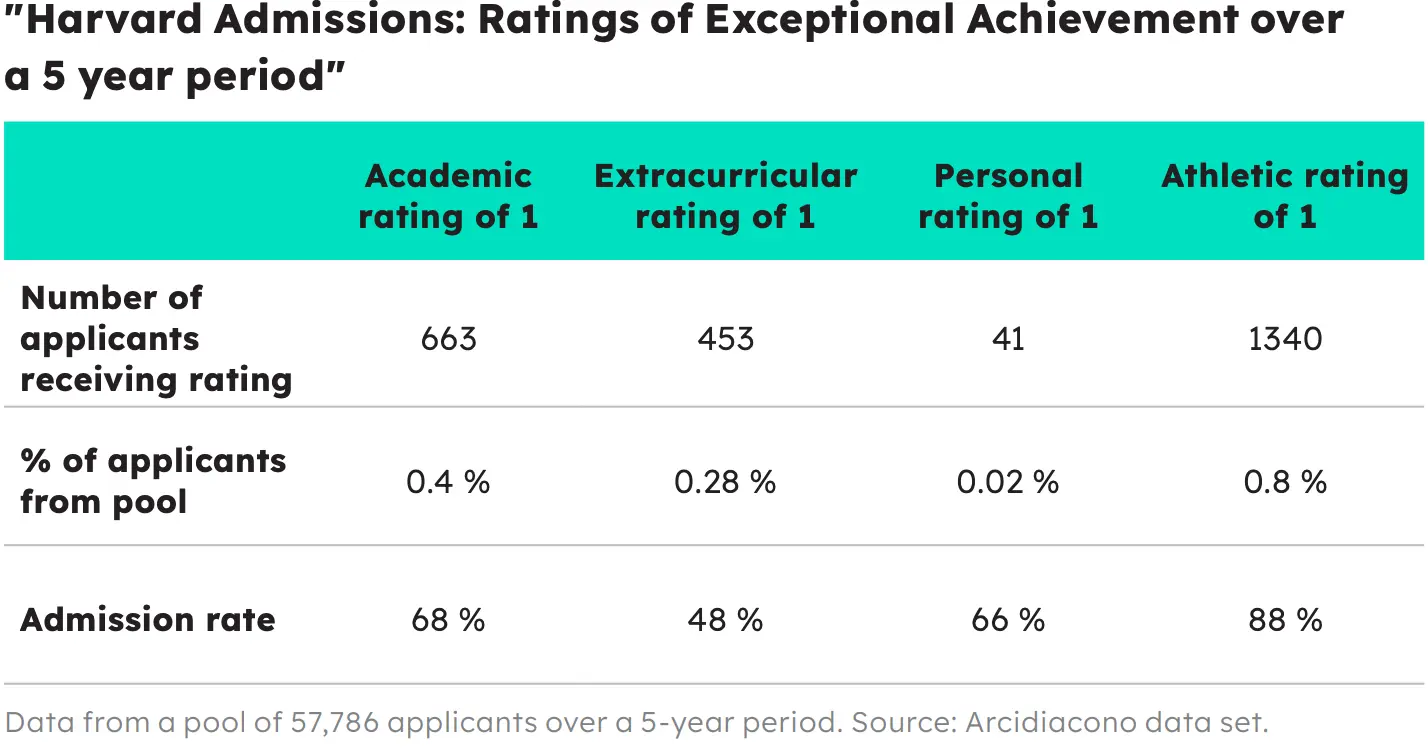Why Do a Research Project in High School? The Key to College Admissions Success
7 minute read
KEY TAKEAWAYS
Data from Harvard Admissions Office shows that students demonstrating “substantial scholarship or academic creativity” are 8x more likely to be accepted into top universities than those with perfect academics alone
Students who feature research guided by Polygence mentors on their applications report roughly 5 times higher admission rates to Ivy League colleges above the national average.
Personal research projects that students work on independently often impress colleges, because their commitment to a successful solo endeavor conveys initiative, self-discipline and originality.
How Do You Value a Research Project?
What’s the one thing you are most passionate about in the world? Have you ever thought of a specific problem or question in that area and wondered how you could start pursuing a solution or an answer?
High school is a tricky time. On the one hand, students often deal with a rigorous course load and academic structure. On the other hand, it is often the first time students are asked to think deeply about what interests them and how to explore it. Research projects provide a structured system and way of thinking to delve deeply into a specific question about an area of interest. As a standard, project-based learning incorporates the following:
A challenging research question
Sustained Inquiry
Authenticity
Student Voice and Choice
Reflection
Critique and Revision
Public Product

These skills and attitudes are vital tools that allow students to examine a question in a meaningful way, dig in deeper using practical methods, exercise agency and intention in their learning, and ultimately arrive at a real final product.
Conducting research helps students connect more deeply with a given subject matter—studies have shown that students that participate in Research Based Learning are more likely to pursue graduate-level education or be engaged in their field of interest long after project completion. Our own research presented here and in our white paper has shown that for over 80% of our students, their Polygence project had an influence on what they ended up studying in college.
Even more convincing however is the growing role that research projects play in college admission success as evidenced by our research.
Are Research Projects a College Admissions Edge?
In the on-going affirmative action lawsuit filed against Harvard University Students for Fair Admissions v. Harvard the prestigious university was required to release a trove of documents detailing their admissions criteria and process. These documents provide a rare glimpse into the black box that is competitive admissions.
Every year, more and more students are graduating high school with 4.0 GPAs and perfect or near-perfect scores on standardized tests. Yet, in spite of this, many of these students do not gain admission into their top choice universities. Harvard itself explicitly states that “Most applicants are academically qualified to attend Harvard.” [1] and that given that “More than 8,000 applicants for the class of 2019 had perfect GPAs, approximately 3,500 applicants had perfect SAT math scores, and nearly 1,000 applicants had perfect ACT and/or SAT composite scores,” [2] the university “takes an individualized approach to admissions that accounts for the whole person.”
Nelson Urena, a former admissions officer at Cornell describes several cases that further prove this point.
During Urena’s time in the admissions office, many students came through who “were academically stellar and had adequate standardized test scores, but their applications lacked tangible indicators of their passions: a project, experiment, portfolio, or an endeavor on which they spent substantial time learning, tinkering, or creating.” Thus, they were not offered admission.
At the same time, he recalls a particularly memorable applicant who wrote an essay about the weather station they built at home, a student who was ultimately offered admission. The difference? A “demonstrated intellectual interest” that clearly proved the student’s fit and match for the program.

Harvard has even codified this preference as part of its admissions ratings system. Students are rated across four key domains (personal, athletic, extracurricular, and academic) on a scale from 1 to 4, where 1 represents exceptional individual achievement.
The table below shows the ratio of students who received a 1 in only one area (multiple 1’s are extremely rare) and their chances of admission. This is based on a sample of 160,000 domestic applications between 2014-2019 studied in the Arcidiacono data set [3].

Though, by and large, most students that apply to Harvard are academically talented, there is still a large variation in how they’re evaluated on this scale. The chart below summarizes the rate of admission for students who were rated either a 1, 2, 3, or 4 for academics. The rate of admission for students who were rated a 1 (68%) was almost eight times higher than students who were rated a 2.

What is the difference between a 1 and a 2 on this scale? According to Harvard’s internal documents, students receiving a 2 typically have “perfect, or near-perfect, grades and testing, but no evidence of substantial scholarship or academic creativity” [4]. In contrast, students receiving a 1 have similarly stellar grades and test results, but have also demonstrated a history of “substantial scholarship or academic creativity”. In fact, Harvard itself states “In many circumstances, an applicant receiving a “1” academic rating has submitted academic work of some kind that is reviewed by a faculty member.”
So what kind of work gets reviewed by a faculty member? According to Harvard, “If the applicant has submitted material that Admissions Office staff believe would be best evaluated by a Harvard faculty member, such as an academic paper or a recording of a musical performance, the application may be sent to a faculty member [...] for review and assessment.”
In summary, based on Harvard’s statement, to get the highest academic rating and have a 68% chance of admission, a student must submit an academic paper or another portfolio item that showcases their ability to carry out substantial academic scholarship.
Data from Polygence alumni further testify to the weight of research in the admissions process. In a survey of 590 seniors from the 2022-23 college application cycle, those who featured research guided by Polygence mentors on their applications reported roughly 5 times higher admission rates to Ivy League colleges above the national average (24.4% vs 5%).
Why Does Higher Education Love Research Projects?
The DNA, radar, game theory and the Google search algorithm were all discovered at top research institutions, such as Cambridge, MIT, Princeton and Stanford. Research at these top R1s institutions is a collaborative effort between professors, graduate students, and undergraduates. This is why these schools look for students who are capable of doing high-quality independent academic work when evaluating prospective applicants. Even at predominantly undergraduate institutions, students engage in serious research, because such an open-ended activity cultivates creativity, persistence, and team spirit in students.
U.S. News reports that “High school students who have an impressive personal project they are working on independently often impress colleges, because their commitment to a successful solo endeavor conveys initiative, self-discipline and originality” [5]. Recent announcements from top universities also support this claim. According to the Dean of Undergraduate Admissions at the University of Pennsylvania, “nearly one-third of the admitted students [to the class of 2026] engaged in academic research during their time in high school” [6]. And at CalTech, “ 45 percent of the students [admitted to the class of 2027] included materials documenting their own past research.”
High school grades and test scores provide little opportunity for students to showcase academic creativity and rigor. A research project, in contrast, is by definition a unique and highly personal achievement that allows students to showcase their intellectual abilities. This is why colleges, from top research institutions to small liberal arts colleges, look favorably upon students who distinguish themselves through independent projects.
Conclusion
From our analysis of the Harvard Admission Lawsuit and the insight of Polygence proprietary data, it is evident that original research stands out as a strong indicator of student academic achievement. Facing a seemingly unending flow of high-achieving applicants, universities have identified independent research as an effective measure to distinguish those with exceptional academic curiosity and grit.
For students themselves, original research allows them to showcase their passion and creativity as well as actively participate in an inherently collaborative intellectual endeavor. With each trial and iteration, research pushes individuals to examine their own role in a larger project of the advancement of knowledge.
In an environment where grades and test scores no longer suffice, this is a new and more durable way for students to make their intellectual vitality shine.
What Are Other Opportunities Offered by Polygence?
If you are looking to develop your own research project, Polygence can help provide new research ideas for future projects. On everything from passion project ideas to matching you with a mentor, Polygence can help you start your journey to higher education. Learn more about our mentor programs and see what other students have done with the help of Polygence.
Related Content
Sources:
Filing - Harvard Statement of Material Facts - as Filed, Case 1:14-cv-14176-ADB, June 15, 2018, https://www.mindingthecampus.org/wp-content/uploads/2022/10/Doc-414-Statement-of-Material-Facts.pdf, §23.
David Card, “REPORT OF DAVID CARD, Ph.D.” Case 1:14-cv-14176-ADB (Docu- ment 419-141). Accessed October 1, 2021. https://projects.iq.harvard.edu/files/diverse-edu- cation/files/legal_-_card_report_revised_filing.pdf
Peter Arcidiacono, “EXPERT REPORT OF PETER S. ARCIDIACONO, No. 14-Cv-14176-ADB (D. Mass),” accessed October 1, 2021, https:// samv91khoyt2i- 553a2t1s05i-wpengine.netdna-ssl.com/wp-content/uploads/2018/06/Doc-415-1-Arcid- iacono-Expert-Report.pdf.
Peter Arcidiacono, “EXPERT REPORT OF PETER S. ARCIDIACONO, No. 14-Cv-14176-ADB (D. Mass),” accessed October 1, 2021, https:// samv91khoyt2i- 553a2t1s05i-wpengine.netdna-ssl.com/wp-content/uploads/2018/06/Doc-415-1-Arcid- iacono-Expert-Report.pdf.
U.S. News and World Report, https://www.usnews.com/education/best-colleges/articles/2018-10-25/how-colleges-weigh- applicants-extracurricular-activities
https://admissions.upenn.edu/blog/congratulations-admitted-class-2026
https://www.caltech.edu/about/news/caltech-extends-admissions-offers-to-class-of-2027
Increase Your Admissions Odds
Polygence alumni had a 92% admissions rate to R1 universities in 2023. Read more about our admissions impact.
